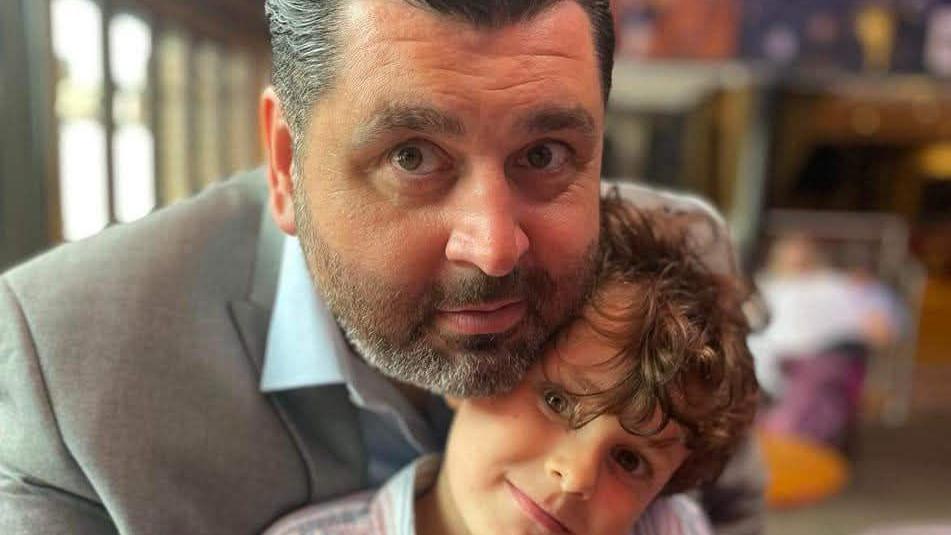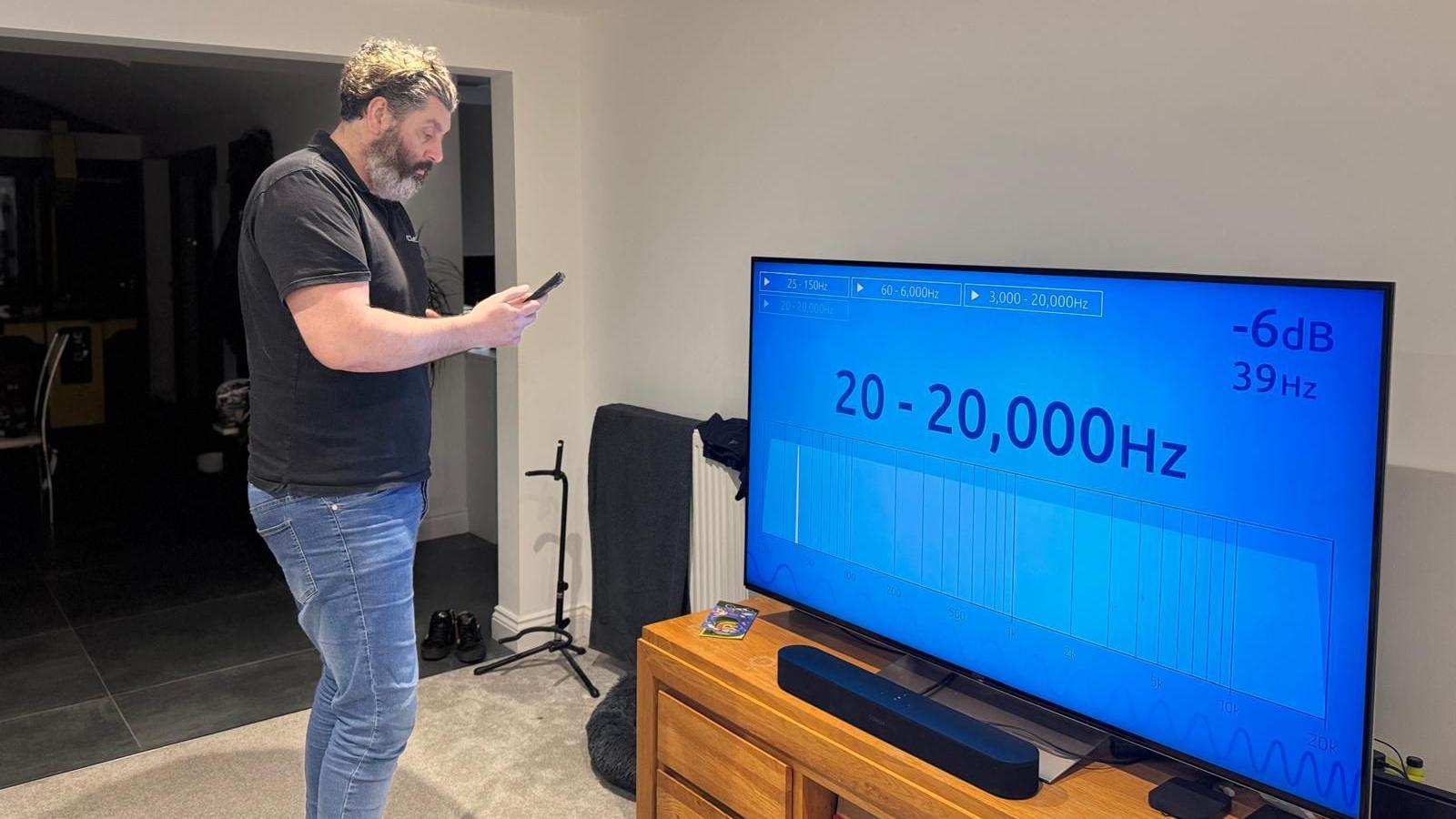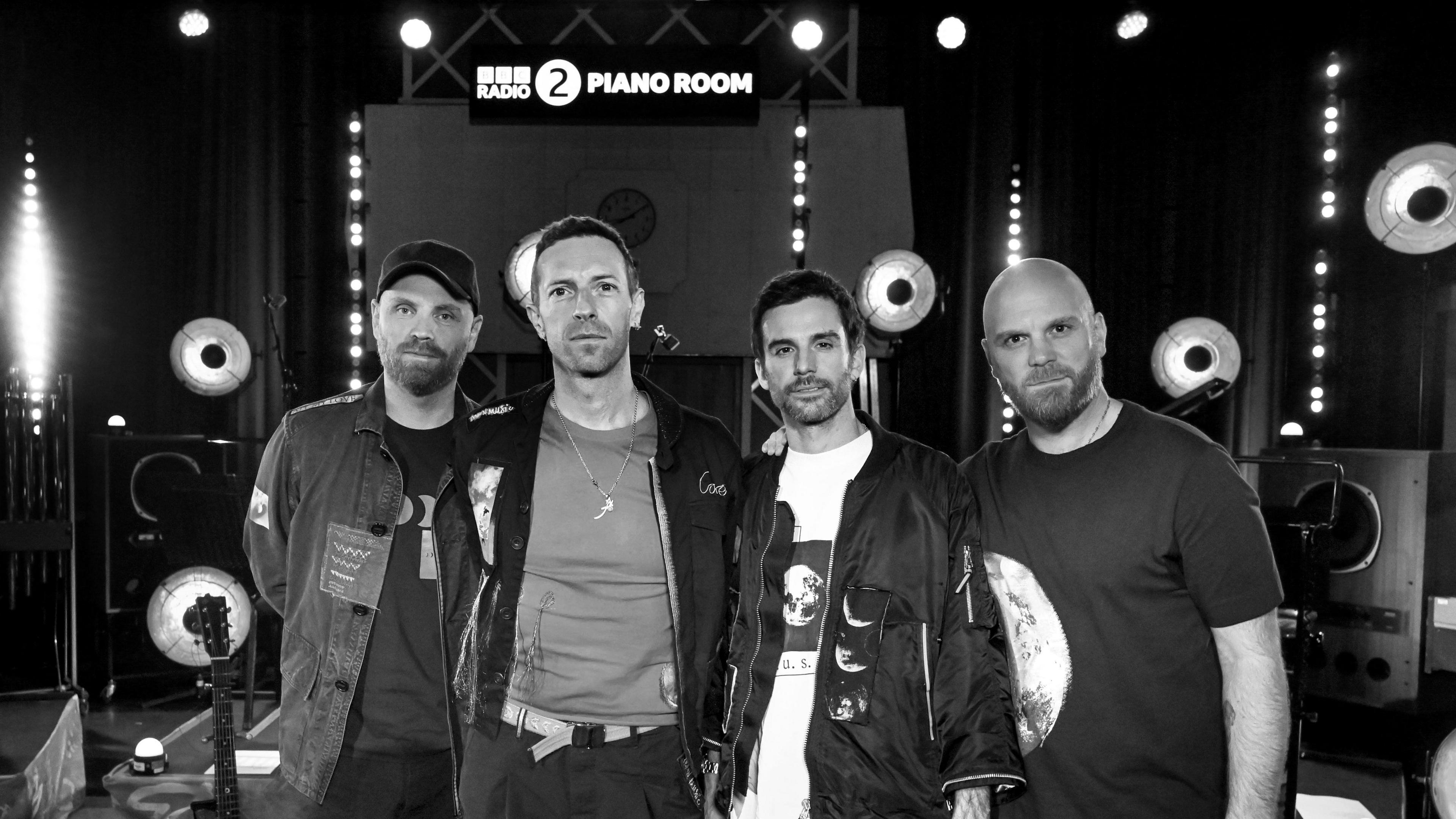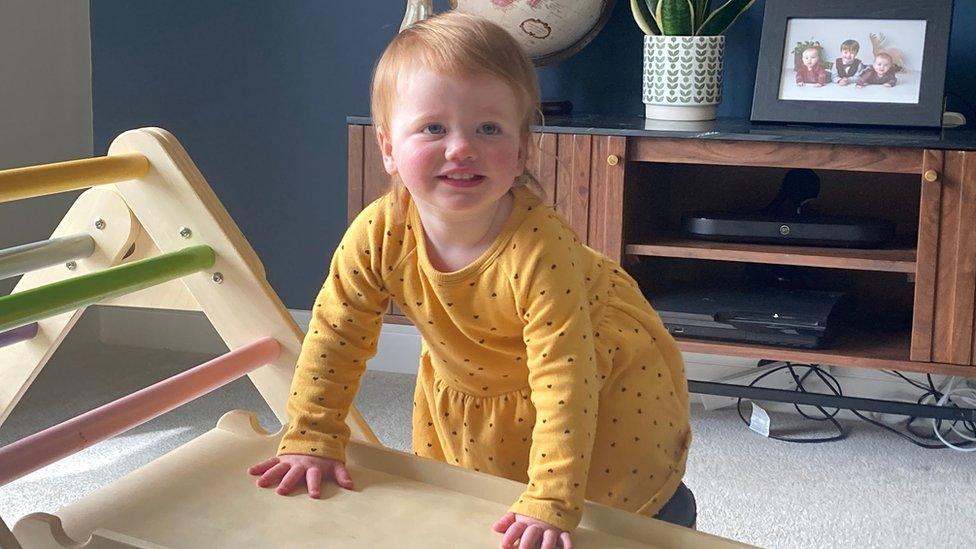'Where is this ringing in my ears coming from?'

Oliver Moazzezi says "awareness is key" to anyone suffering and trying to manage their tinnitus
- Published
Oliver Moazzezi was working from home when he first heard a loud ringing in his ears.
"I had an anxiety attack. I went from near perfect hearing to having hearing loss and tinnitus. I was hugely depressed," he said.
He describes his experience as a "journey down a long road to self-discovery" after struggling to find the right support and treatment from health professionals.
A new report by Tinnitus UK, external estimates eight million people in the UK will be affected by tinnitus by the end of 2025.
What is tinnitus?
Tinnitus is when you hear sound in your head or ears when there is nothing externally making that sound. You might get it in one ear, both ears or in the middle of your head
It is caused by brain activity that has got out of balance and can be either constant or temporary and can change in volume
Tinnitus can affect anyone - as many as one in three people will experience tinnitus at some point - and can be triggered by hearing loss, listening to loud noises over a long period of time or just at random
There is currently no cure but there are treatments, such as sound masking and cognitive behavioural therapy (CBT)
For more information follow this link: https://tinnitus.org.uk/, external
What does tinnitus sound like?
If he is lucky, Mr Moazzezi says his tinnitus sounds like a "hiss", otherwise it can sound like a very unpleasant "high-pitched scream".
Initially after speaking to his GP, the Hampshire-based IT consultant said he felt helpless because they did not understand how bad it was.
So he decided to see if he could measure how loud the ringing was by using a combination of apps on his phone and TV.

Mr Moazzezi said he felt GPs struggled to sympathise with him
Sound masking is a method used by people with tinnitus which uses white noise like rainfall or wind to mask the sound they are experiencing.
Mr Moazzezi played white noise on his TV and kept turning the volume up until he could no longer hear his tinnitus.
Then he used a decibel meter on his phone to measure how loud the sound was coming from his TV.
"At one point it was like 90 decibels. It was consistently between 40 and I think 67 for a period of time," he told the BBC.
"But I essentially had 40 to 90 decibels of tinnitus for about two-and-a-half months."
He says it was only after doing his own research that he managed to lower it to a milder level and for it to become more manageable.
He said: "I found lots of information online. Seeing how many famous people suffer with it I got a greater understanding of how they actually function. I eventually came to the realisation that maybe I can function too."
Sonja Jones is an audiologist and part of the scientific advisory board for Tinnitus UK - she is also one of the authors of the report.
She explained current continuing professional development (CPD) was not good enough and for a number of private clinics tinnitus was a low priority.
"We're seeing systemic issues from the ground up all over the audiology industry. From the training on day one of audiology school to the post-qualification training. These aren't standardised so no-one is necessarily singing from the same sheet," she said.
The report also highlighted long delays in NHS tinnitus care, external, with clinicians reporting waiting times of up to 12 months for psychology, talking therapies, CBT referrals or hearing aid assistance and three years for ENT appointments.

Coldplay frontman Chris Martin has publicly revealed he suffers from tinnitus
Eventually after testing, Mr Moazzezi was told he had lost some of his hearing in both ears - and like lots of people when they experience ringing sounds for the first time searched for answers.
"I work from home and I don't expose myself to loud noises very often at all.
"I found that some of the antibiotics I had been taking were ototoxic. My ENT specialist said this could have contributed but there's no way of proving any of those things," he added.
Don McFerran, president of Tinnitus UK, is an ENT surgeon with a sub-specialty interest in otology and, in particular, tinnitus.
He said: "Most medications do not cause tinnitus (are not ototoxic), but there are some exceptions. Drugs that contain platinum, certain antibiotics, and some other medications can have ototoxic effects."
But for Mr Moazzezi he said it was all about making people aware of how important our ears are.
"I'm just trying to get the message out there to help people protect themselves. Obviously not everyone can prevent themselves getting it but like exercise it's preventative maintenance," he said.
If you have been affected by anything in this article you can contact the BBC Action Line at www.bbc.co.uk/actionline
Get in touch
Do you have a story BBC Hampshire & Isle of Wight should cover?
You can follow BBC Hampshire & Isle of Wight on Facebook, external, X, external, or Instagram, external.
- Published9 May 2024

- Published10 February 2019

- Published7 February 2022
